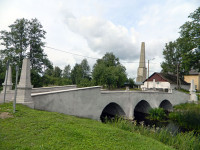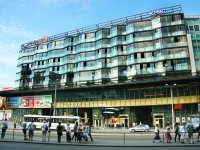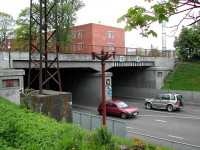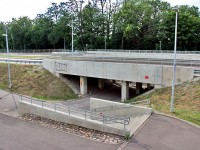![]()
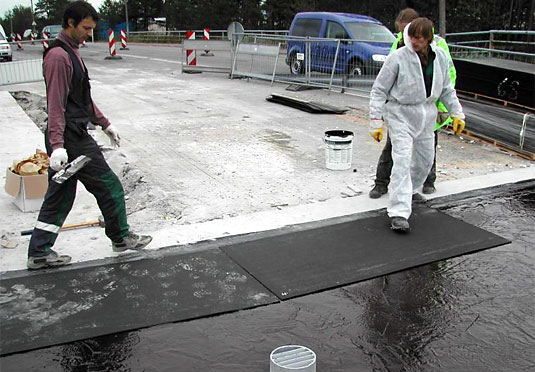
Servidek / Servipak
Cold applied liquid hydro-insulation system for concrete and steel bridges and other moving surfaces
Description of products
Servidek® is the two-component, liquid applied, rubber bithumene hydro-insulation system. Reaction of the liquid material, cold applied with a trowel or squeegee, forms seamless elastomeric hydro-insulation membrane.
Servipak® protection boards are made from aggregates that bond with bitumene mass laminated between two rough asphaltic papers. Boards bond to liguid membrane, protecting it against damages when hot or cold applied with the installed coatings. Boards are 3 mm, 6 mm and 12 mm wide.
Armourtape™ is self-adhesive rubber bitumene tape, covered with a layer of rough asphaltic paper. It is used for sealing Servipak boards joints.
Advantages
- damp surface tolerant – fewer restrictions to weather conditions during application;
- green concrete tolerant – if necessary, can be applied to newly poured concrete surfaces, normally, 24 hours later. In that case, it also acts as concrete curing compound;
- elastomeric – will accept cracking in substrates caused by deflection;
- low temperature performance – adhesion and flexibility properties maintained in –40 ºC service conditions;
- speed – hydro-insulation is tolerant to finishing 4 hours after installation;
- easily applied with a squeegee or trowel – no need for special equipment;
- no priming – Servidek® is applied directly to clean substrates;
- no heating or mixing mechanically required – there is no need for technical devices.
- hard Servipak® protection boards – protect membrane from the finishing layers;
- proven performance – over 25 year on British and international road/rail bridges and parking structures
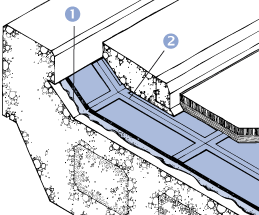
In the drawing
|
Application
General: Servidek®/Servipak® should be installed by contractors, that have been trained by Grace in correction application procedures.
Servidek®/Servipak® application ambient temperature range is between +4 ºC …+ 35 ºC. Substrate temperature should exceed the dew point.
The application is not permitted if rain or frost is imminent or in conditions when it is likely to freeze before final curing takes place.



